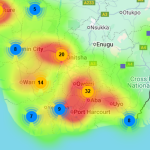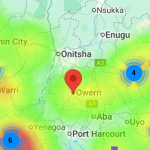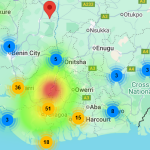Will NDLink be free?
Registration for members is free. However, as time goes on, a token annual membership fee will be required for interested registered members and corporate organizations in order to access premium content.
Can stakeholders contribute information and how?
Upon registering as part of the Niger Delta Members, stakeholders can
- contribute information like news and information in the communities in which they are working and their current and upcoming projects and reports using the Niger Delta News;
- post new vacancies and tenders on the Niger Delta Jobs;
- inform and announce calls for proposals on existing and planned development projects using Niger Delta Projects;
- post comments, discussions and blogs on trending development issues on the Niger Delta Community pages.
- Organizations, including donors, civil society organizations, business associations and government agencies, can post their profile and information on the Niger Delta Organizations database to become part of a regional directory
- Professionals can add their details to the Niger Delta Professionals directory where organizations local or foreign can scout for staff and consultants, and donors can find possible partners.
- Interested members can register for Niger Delta Insights, a premium feature that allows paid subscribers to get access to on-the-ground news reporting from even the most remote communities in the region. We strive to publish information that may not be found in any major newspaper thereby providing a birds-eye view of communities for observers of social, economic and political trends in the region.
Fit with PIND’s mandate
PIND’s mandate is to establish and encourage innovative partnerships which support activities through which communities in the Niger Delta are empowered to achieve a peaceful and enabling environment for equitable economic growth. By creating an online platform where various development organizations, actors and professionals , both local and international who have a stake in Niger Delta development can network, connect, collaborate and coordinate development efforts in the region for more impact, PIND is fulfilling this mandate of fostering partnerships and actually empowering people through information.
History behind NDLink
PIND was launched in 2010 with a mission to foster partnerships that can unlock the development challenges of the region and bring about socio-economic progress.
One of the first challenges we faced was the scarcity of reliable up-to-date statistics on socio-economic indicators, demographic trends, and data on violent conflict in the region.Additionally, PIND staff had to learn that the information available was rarely shared openly with other stakeholders in the international development community, thereby obstructing coordination and hampering real progress in the region.
To respond to this challenge, PIND engaged Devex in 2012 to conduct an in-depth assessment into the challenges faced by different actors within the international development community in the Niger Delta. The study found that
- National, regional and local government authorities struggle to effectively communicate with other stakeholders, coordinate with them and build their own staff capacity;
- Donors face difficulties when coordinating with each other regarding project implementation, engaging reliable partners and finding staff;
- Implementing organizations encounter difficulties finding staff/consultants, gaining access to funding and building relationships and networks;
- International oil companies struggle to find staff and consultants, and fail to promote their community engagement accomplishments effectively;
- Development professionals lack a platform that would allow them to search for employment and gain a better insight of current events in the region.
PIND consequently decided to design NDLink, an online project, which serves as a one-stop-shop for the various development actors in the region, and which allows them to find the information they need to provide more targeted development without any logistics requirement, frantic calls and desperate searches.
Who are the Niger Delta Partners?
Niger Delta Partners are those local and international corporations, donor agencies and development organizations that provide funding support towards the NDLink project mission. NDPartners will have a dedicated page on NDLink displaying their current projects and job openings along with a space for promotional activities.Interested organizations can become partners by paying a fixed annual contribution to NDLink.
The main groups NDLink tries to target ?
NDLink hopes to target key development actors in the region, namely: government, donor organizations, international organizations (private and public), local implementing organizations, and development professionals.
| Stakeholder Group | How NDLink plans to help |
| Government | Stakeholder coordination, building staff capacity, and external communications |
| Donors | Donor coordination, engaging reliable partners, finding staff and consultants |
| Private Companies | Engaging reliable partners, finding staff consultants, and promoting community engagement accomplishments |
| Implementing Organizations | Finding staff and consultants, gaining access to funding and building relationships and networks |
| Development professionals | Finding employment and understanding current events in the region |
What makes it different from Devex and other similar sites?
There is no single organization providing the wide range of services specific to the Niger Delta that NDLink strives for. NDLink,is modeled on Devex,the largest online community for international development but will be able to capture the specific needs of stakeholders in the Niger Delta region.
What makes NDLink different from previous efforts to encourage stakeholder cooperation in the Niger Delta
NDLink seeks to harness the power of the internet to provide a single platform through which local and development actors, irrespective of where and who they are, can coordinate more effectively with one another, build capacity, share and contribute information on Niger Delta development.






